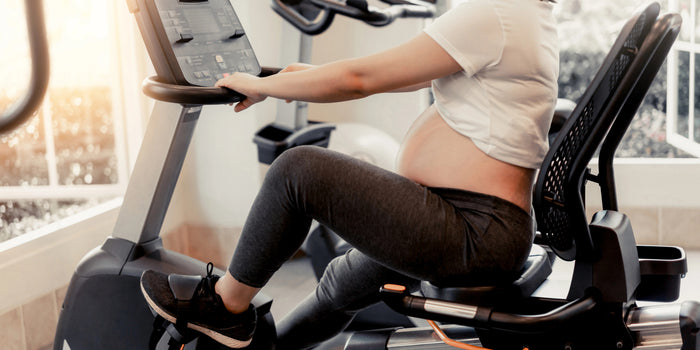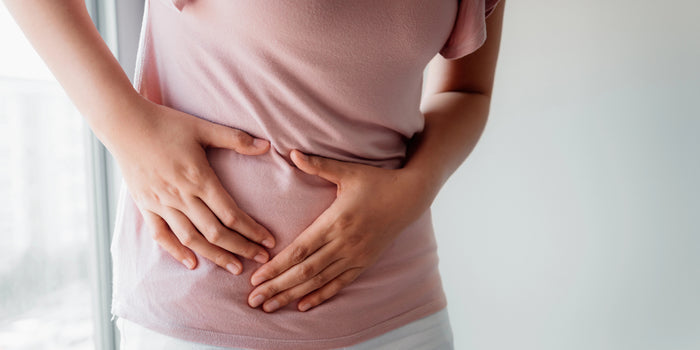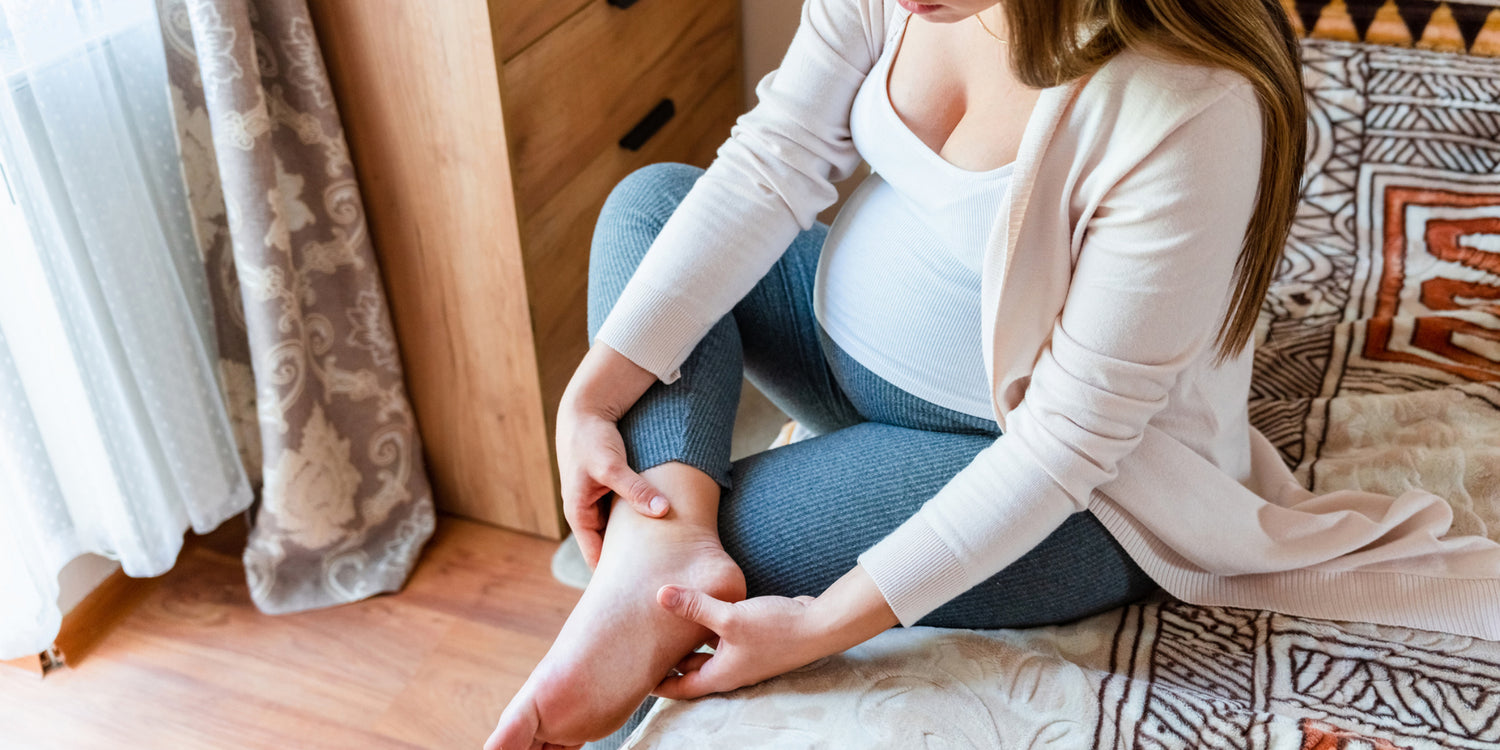Pregnancy can be an incredible journey, but it often comes with a host of physical discomforts that can make the experience challenging. One of the most common complaints among expectant mothers is the presence of aches and pains, particularly in the feet and lower limbs. However, there is a natural and effective solution that can provide relief - foot massage.
Whether you're a first-time mom or a seasoned pro, a foot massage can help alleviate various pregnancy-related pains and discomforts, making your pregnancy journey a more comfortable and enjoyable experience.
So, if you're ready to bid farewell to those nagging aches and pains, learn how a simple foot massage can be your new ally towards a more relaxed pregnancy experience.
What Are Pregnancy Pains?

Pregnancy pains, also known as "pregnancy discomforts," are a common experience for many women during pregnancy. They are a natural part of the process as the body adjusts to the physical changes and growth that occur during pregnancy. Back pain is one of the most common, as the added weight and change in center of gravity can strain the back muscles and cause pain.
Pelvic pain, also called "round ligament pain," is a sharp, stabbing pain in the lower abdomen or groin area, caused by the stretching of the ligaments that support the uterus. Leg cramps, particularly in the calves, are very common, especially later in pregnancy, often due to fatigue, poor circulation, or mineral deficiencies.
Hormonal changes and increased blood volume during pregnancy can trigger headaches for some women. Fluid retention can cause swelling in the feet, legs, and hands, leading to discomfort. As the uterus grows, it can put pressure on the stomach, causing heartburn and indigestion.
Sore breasts, with tenderness and sensitivity, are common, especially early in pregnancy as the breasts prepare for breastfeeding. These pains are a normal part of the pregnancy process as the body goes through significant changes to accommodate the growing baby, and while they can be uncomfortable, they are generally manageable with rest, exercise, and sometimes medication as recommended by a healthcare provider.
How Important is Pain Relief During Pregnancy?
Pain relief during pregnancy is a crucial aspect of ensuring the well-being of the expectant mother. The various methods of pain relief can be broadly categorized into non-medical and medical options.
Non-medical options for pain relief during pregnancy include relaxation techniques such as deep breathing exercises, meditation, and yoga. These methods not only help to alleviate physical discomfort but also promote mental relaxation and reduce stress. Physical activity, such as regular exercise and prenatal massage, can also provide relief from pregnancy-related aches and pains.
On the other hand, medical options for pain relief during pregnancy include over-the-counter medications like acetaminophen, which can help to alleviate mild to moderate pain. In more severe cases, healthcare providers may recommend stronger pain medications like opioids.
The importance of pain relief during pregnancy cannot be overstated. Pregnancy itself comes with a range of discomforts, including back pain, joint pain, and pelvic pain. By providing pain relief, expectant mothers can experience improved physical well-being and a better quality of life.
Moreover, pain relief during pregnancy has a significant impact on the mental health of the expectant mother. Chronic pain can lead to stress, anxiety, and sleep disturbances, which can negatively affect the overall mental well-being. By managing and reducing pain levels, expectant mothers can enhance their emotional and psychological well-being, thus improving their overall pregnancy experience.
Can a Foot Massage Help with Pregnancy Pains?

Pregnancy is a beautiful and transformative time in a woman's life, but it can also come with its fair share of discomforts and pains. From backaches to swollen ankles, many expectant mothers seek relief from these discomforts. One popular and effective method that has gained attention is foot massage.
While a foot massage may seem like a simple pleasure, it offers numerous potential benefits for pregnant women. By targeting specific pressure points on the feet, a foot massage can potentially alleviate pregnancy-related pains, reduce swelling, enhance blood circulation, and promote relaxation.
However, it is important to understand the potential risks and consult with a healthcare professional before incorporating foot massages into a pregnancy care routine to avoid complications.
What Are the Benefits of a Foot Massage During Pregnancy?
A foot massage during pregnancy offers numerous benefits that can greatly contribute to the overall well-being of the expectant mother. Firstly, it can alleviate joint pain that often arises due to the additional weight and changes in the body's center of gravity. The gentle pressure applied during a foot massage can help to alleviate discomfort and reduce inflammation in the joints.
Additionally, foot massages can effectively reduce muscle tension that is commonly experienced during pregnancy. The repetitive strain on the muscles can cause stiffness and soreness, but a massage can help to relax and loosen these muscles, ultimately providing relief.
Improved blood flow is another advantage of receiving a foot massage. Pregnancy often results in reduced circulation, leading to issues such as swelling in the feet and ankles. Through various massage techniques, increased blood flow is stimulated, enabling nutrients and oxygen to reach the most needed areas. This enhanced circulation can also aid in reducing edema and preventing varicose veins.
Furthermore, foot massages promote relaxation and reduce stress levels. The gentle strokes and pressure applied during the massage release endorphins, which are known as the body's natural feel-good hormones. This release of endorphins can help to calm the mind, reduce anxiety, and create an overall sense of tranquility.
Are There Any Risks to Getting a Foot Massage During Pregnancy?

During pregnancy, many women experience discomfort and pain in their feet. While a foot massage can provide relief, it is essential to consider the potential risks involved. There are two main concerns when it comes to getting a foot massage during pregnancy: blood clots and changes in blood flow.
One of the most significant risks is the formation of blood clots. Pregnancy already increases the risk of blood clots due to hormonal changes and increased blood volume. A foot massage that involves deep pressure or vigorous rubbing could potentially dislodge a blood clot, leading to serious health complications.
Additionally, changes in blood flow can occur during pregnancy. As the uterus grows, it puts pressure on the blood vessels in the pelvis, restricting blood flow in the lower extremities. A foot massage could potentially exacerbate this issue by increasing blood flow, which may overload the circulatory system and potentially cause complications.
It is crucial for pregnant women to consult with their doctor before receiving any lower extremity massage, especially if there is a history of blood clots. A healthcare professional can evaluate the individual's specific circumstances and provide personalized advice. They may recommend alternative methods for foot pain relief that pose fewer risks, such as elevating the feet or using cold compresses.
Takeaway
While a foot massage can be a natural and effective solution to alleviate various pregnancy-related pains and discomforts, it is essential for expectant mothers to exercise caution and seek medical advice before incorporating it into their pregnancy care routine.
Pregnancy pains, such as back pain, pelvic pain, leg cramps, and swelling, are a common experience for many women. Providing pain relief during pregnancy is crucial for the well-being of the expectant mother, as it can improve her physical and mental health.
A foot massage can offer numerous benefits, including reduced joint and muscle pain, improved blood circulation, and enhanced relaxation. However, there are potential risks involved, particularly the formation of blood clots and changes in blood flow. Pregnant women should consult with their healthcare providers to ensure that a foot massage is a safe and appropriate option for their individual circumstances.
By understanding the potential benefits and risks of a foot massage during pregnancy, expectant mothers can make informed decisions and work closely with their healthcare team to create a pregnancy journey that is as comfortable and enjoyable as possible.
Renpho Health Tips
-

Spinning for Two: What Expecting Moms Need to Know About Indoor Workouts
May 28, 2024
Read more >
-

How Foot Reflexology Can Provide Relief for Menstrual Cramps
May 23, 2024
Read more >
-

Relieve Stress and Enhance Relaxation: The Therapeutic Benefits of Compression Massage
May 14, 2024
Read more >
-

Sideline to Recovery: Navigating Through Common Sports Injuries
March 21, 2024
Read more >
-

Vibrating Away Stress and Tension: How Therapeutic Vibration Can Transform Your Wellness Routine
May 20, 2024
Read more >
